Search
Search Results
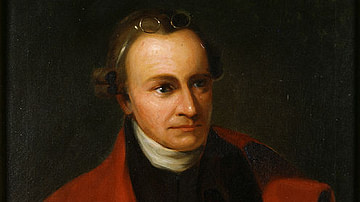
Definition
Patrick Henry
Patrick Henry (1736-1799) was a Virginian lawyer and politician who played a vital role in the American Revolution (c. 1765-1789). Known for his brilliant oration, including the famous Give Me Liberty or Give Me Death speech, Henry served...
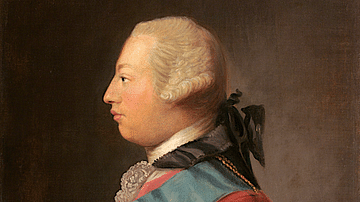
Definition
George III of Great Britain
George III of Great Britain (r. 1760-1820) was the third of the Hanoverian monarchs, and he remains the longest-reigning king in British history. His six decades on the throne saw the creation of the United Kingdom, the loss of the 13 American...
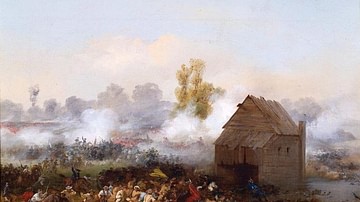
Article
Battle of Long Island
The Battle of Long Island (27 August 1776), or the Battle of Brooklyn, was an important battle of the American Revolutionary War (1775-1783). It resulted in the defeat of the Continental Army and led to the eventual British occupation of...
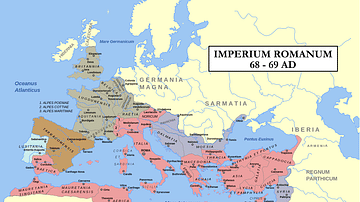
Article
The Batavian Revolt
Batavian revolt was a rebellion of the Batavians against the Romans in 69-70 CE. After initial successes by their commander Julius Civilis, the Batavians were ultimately defeated by the Roman general Quintus Petillius Cerialis. The year...
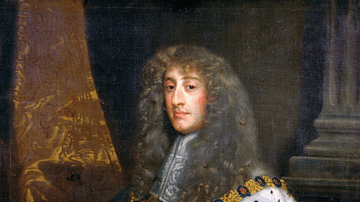
Definition
James II of England
James II of England (r. 1685-1688) reigned briefly as the king of England, Scotland, and Ireland until he was deposed by the Glorious Revolution of November 1688. James, also known as James VII of Scotland, was the fourth Stuart monarch...
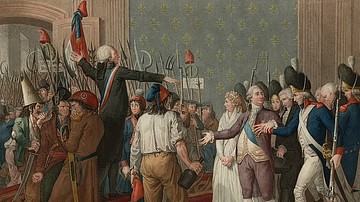
Definition
Demonstration of 20 June 1792
The Demonstration of 20 June 1792 was a final attempt by the sans-culottes of Paris to reconcile King Louis XVI of France (r. 1774-1792) with the French Revolution (1789-99). Prompted by the king's veto of popular decrees, the people invaded...

Video
American Revolutionary War - Summary on a Map
In this video, let's retrace on maps the American Revolutionary War, since the end of the Seven Years' War until the recognition of the US. Independence by Great Britain. Chapters 00:00 Seven Years' War 00:37 Tensions 01:38 Boston Tea...
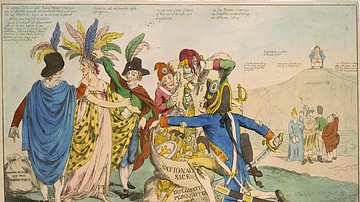
Definition
XYZ Affair
The XYZ Affair was a diplomatic incident that occurred in 1797-98, involving diplomats from the United States and Revolutionary France. Amidst rising tensions between the two nations, President John Adams sent envoys to Paris to negotiate...
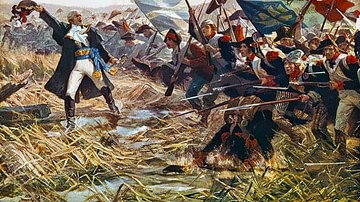
Definition
Battle of Jemappes
The Battle of Jemappes was a decisive battle in the War of the First Coalition (1792-97), part of the French Revolutionary Wars (1792-1802). On 6 November 1792, a French army under General Charles-François Dumouriez defeated an Austrian force...
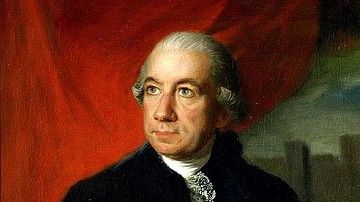
Definition
Henry Laurens
Henry Laurens (1724-1792) was an American statesman from South Carolina who played an important role in the politics of the American Revolution (1765-1789). He served as president of the Second Continental Congress from 1777-78 and presided...